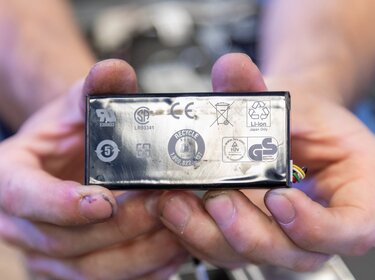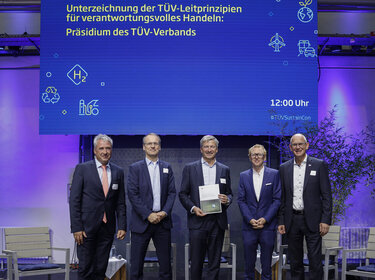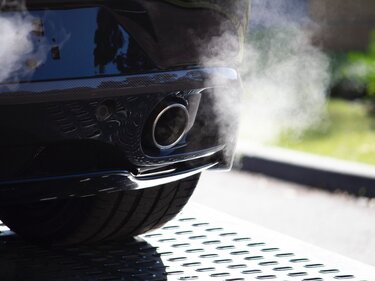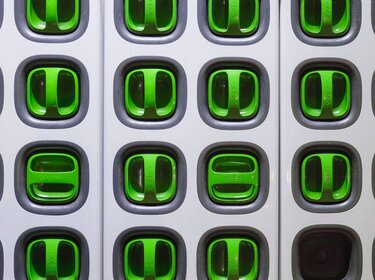Sustainability reports: Business associations warn of bottlenecks
Sustainability
Climate protection

With the Green Deal, the President of the European Commission Ursula von der Leyen wishes to set ambitious climate targets and to make Europe the first climate-neutral continent by 2050. Germany has also committed to the goal of being greenhouse gas-neutral by 2050. Resource-saving technologies must be developed further, modern mobility concepts implemented and greater transparency created for climate-friendly consumption to achieve this. The climate goals can only be achieved if energy-intensive industries switch to clean and renewable energies and efficient digital solutions that conserve resources and the environment. Climate targets must therefore be combined with future-oriented, innovation-friendly economic and consumer policies.
Beside political objectives and binding ecological standards, consistent protection of our climate requires measures and institutions, which ensure that the legal requirements are met and complied with. The TÜV organisations will make an important contribution here with independent tests and certifications.
The TÜV Association has identified five goals to help achieve the ambitious climate targets:
1. Expand renewable energies and ensure their safety and acceptance
The switch to renewable energies is a decisive driver for a largely emission-free energy supply. Wind and solar power play a crucial role here. A stable, reliable and efficient energy supply is essential for the general population as well as for the economy. The same applies for their quality and safety. Regular and independent inspections of wind energy and solar plants can boost trust and acceptance to further speed the expansion.
2. Identify the potential of green hydrogen and win consumers’ trust
Hydrogen will play a decisive role as an energy source in the success of the energy transition and achievement of the climate targets. This is particularly true for green hydrogen – so hydrogen obtained from renewable energies. It can be used as a storage medium to further the integration and use of energy from renewable sources and as sector coupling technology for the decarbonisation of all energy-intensive sectors (the steel industry, for instance). Hydrogen offers great opportunities for Europe as a business location. The EU has recognised this potential and already taken an appropriate first step and set ambitious targets for the market launch of the hydrogen economy with the European Hydrogen Strategy. The European economy is already well positioned today in the development and export of hydrogen and power-to-X technologies. Hydrogen can therefore not only contribute to the achievement of the climate targets, but also to the competitiveness and innovative capacity of the European economy. Besides the factors of economic efficiency and reliability, safety is decisive for the acceptance of hydrogen as an energy source. The TÜV organisations already afford extensive expertise and experience in hydrogen technologies and ensure the required safety with their services.
3. Create safe and sustainable mobility for the future
Traffic burdens the climate and the environment in many ways. In Europe, it is responsible for almost 30 percent of CO2 emissions, for example. Alternative drive systems will be essential to make Europe’s traffic sector CO2-neutral in the long term. Electric mobility must be the top priority from now on. Greater incentives to purchase an electric vehicle, massive expansion of the charging infrastructure combined with better information on the ranges that are already possible today as well as higher safety standards are needed to provide the decisive boost for electric mobility. Particularly the safety of electric mobility must be improved further to ensure acceptance of the new technology is not jeopardised.
Intelligent mobility concepts must also consistently be promoted in addition to electric mobility: automation, networking, sustainability and multimodality are the buzzwords here. Europe has the opportunity to become a pioneer of modern mobility. The goal must be to continue strengthening the automotive location in the long run and to facilitate attractive mobility offers for citizens – for a clean, affordable and intelligent mobility ecosystem both in urban and rural areas.
4. Use artificial intelligence to protect the climate
Digitalisation can contribute decisively to the fight against climate change. Particularly artificial intelligence (AI) allows intelligent power provision, advances in sustainable mobility and precise statements about climate change through modelling, for example. At the same time, digital technologies and infrastructures have a considerable ecological footprint. Binding environmental guidelines are therefore needed to ensure digitalisation does not become an accelerant of ecological destruction. Safety and transparency must also be ensured in the development and use of AI technologies. Only if the necessary trust can be created in society, AI can help us to protect our planet.
5. Achieve transparency for consumers regarding climate-friendly products
Consumers are also able to contribute to climate protection with their consumption and purchasing decisions. Therefore, it must be easy for them to recognise products and services that are conducive to climate protection. This applies to green electricity as well as to textiles produced using environmentally-friendly processes. However, the countless voluntary “labels” that now identify products as sustainable are confusing and their validity is not consistently assured. To avoid falling for dubious offers available on the market, consumers are able to orientate themselves to quality seals issued by independent assessment institutions. In order to consistently foster sustainable production, policymakers are also called upon to set legally binding requirements for aspects of product sustainability such as the reparability, recyclability, durability, etc. The EU’s Sustainable Products Initiative, the considerations on green claims but also the proposal for a new regulation for batteries are effective instruments to improve the sustainability of products and at the same time foster the competitiveness and innovative capacity of the European economy.
News and positions
Do you have any questions?
![Juliane Petrich [Translate to Englisch:]](/fileadmin/_processed_/9/6/csm_TUEV-Verband_Juliane_Petrich__C__Tobias_Koch__1__1500px_44a48d0313.jpg)
Juliane Petrich
Head of Politics and Sustainability and Executive Officer




![TÜV Association calls for binding product sustainability requirements [Translate to Englisch:]](/fileadmin/_processed_/0/6/csm_possessed-photography-JG80MshfiHo-unsplash-nachhaltigkeit-muell-recycling-kreislaufwirtschaft_ca2b0dce35.jpg)




